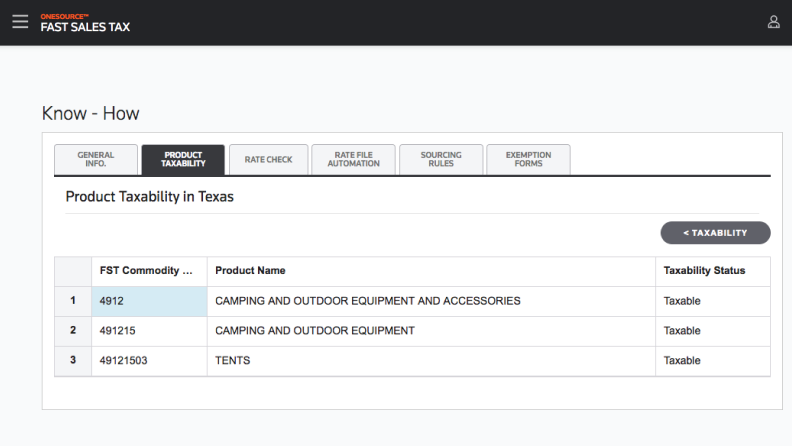PGA Tour Says Saudi Wealth Fund Could Put at Least $1 Billion Into Golf Deal
A PGA Tour executive told Congress on Tuesday that Saudi Arabia’s sovereign wealth fund could invest more than $1 billion in an ambitious alliance that stands to reshape professional golf — if it withstands scrutiny in Washington and a wellspring of suspicion and outrage over the Saudis’ widening role in a global sport.
Appearing before senators whose questions ranged from coddling to prosecutorial, the tour’s chief operating officer, Ron Price, said that the size of a cash infusion from the wealth fund into a planned for-profit company was not final. But he acknowledged “discussions” that could ultimately result in an investment “north of $1 billion.”
The acknowledgment, during a hearing that was sometimes fraught with congressional angst over the notion of foreign money sloshing around golf, underscored the scale of Saudi Arabia’s mounting ambitions in international sports, which have included forays into soccer and Formula 1 racing. The proceeding, though, also made conspicuous the haziness of the framework agreement that has convulsed professional golf since it was announced on June 6.
That pact was effectively a broad outline to create a for-profit company that would include the business ventures of the PGA Tour, the wealth fund and the DP World Tour, formerly the European Tour. Little in the agreement besides a commitment to ending litigation is binding, and negotiators are hoping to reach a sealed-up contract by the end of the year.
Addressing the Senate’s Permanent Subcommittee on Investigations on Tuesday, Price said, “You generally don’t negotiate a deal in public, but we’re committed to try to move from a framework agreement to a definitive agreement.”
In Price’s telling, the deal’s advancement is essential to the survival of the tour, which is a fraction of the wealth fund’s size. In the tour’s estimate, legal bills, swelling purses to try to retain the loyalties of top players and the like were rising so fast that they would soon be unsustainable.
James J. Dunne III, a member of the tour’s board who helped negotiate the initial deal, said the wealth fund had “a management team that wants to destroy the tour,” backed up by “an unlimited horizon and an unlimited amount of money.”
“We knew that a long-term fight would be harmful,” Dunne said at one point during the hearing, held in a crowded Capitol Hill room that had previously been the site of Supreme Court confirmation hearings and meetings of the 9/11 Commission.
Tour executives have been eager to show how the agreement, though tentative, leaves them positioned to run professional golf’s day-to-day operations. The tour’s commissioner, Jay Monahan, has been tabbed as the chief executive of the new company, which is expected to be called PGA Tour Enterprises, and the tour is expected to fill a majority of the company’s board seats.
The executives have been far less eager to discuss how Yasir al-Rumayyan, the wealth fund’s governor, will serve as the chairman of PGA Tour Enterprises and how the framework agreement lays the groundwork for sweeping investment rights for a Riyadh-based fund whose power and value have swelled in recent years.
Reaching a final agreement is no certainty. Over the weekend, one member of the tour’s board, the former AT&T chief executive Randall Stephenson, resigned. In a letter about his exit, Stephenson said that “the construct currently being negotiated by management is not one that I can objectively evaluate or in good conscience support.”
If the board ultimately supports a more binding arrangement, the deal could run headlong into the Justice Department’s antitrust regulators, who could seek to block the transaction. Price said Tuesday that the department had made clear its intention to examine the arrangement.
Up Pennsylvania Avenue from the Justice Department, the framework has prompted two Senate inquiries, a bill in the House to revoke the tour’s tax-exempt status and Tuesday’s hearing. The hearing, though, was a showcase of how congressional opposition may only do so much, beyond providing a bully pulpit for grievances, since senators could not even agree on whether the proceeding was all that worthwhile.
Senator Richard Blumenthal, Democrat of Connecticut, blistered the tour for its about-face in recent weeks, when it went from condemning Saudi money in golf to embracing it.
“The money is the reason you surrendered,” Blumenthal, the subcommittee’s chairman, chided Price and Dunne. Earlier, he had said that the hearing was “about hypocrisy, how vast sums of money can induce individuals and institutions to betray their own values and supporters, or perhaps reveal a lack of values from the beginning. It’s about other sports and institutions that could fall prey, if their leaders let it be all about the money.”
Other lawmakers were more accommodating. Senator Ron Johnson of Wisconsin, the panel’s ranking Republican, said there was “nothing wrong with the PGA Tour negotiating its survival.”
“Negotiations are often delicate, mostly private, and I fear Congress’s getting involved at this stage could have negative consequences,” Johnson said. Senator Rick Scott, Republican of Florida, asked about the tour’s charity work.
It remains unclear whether the unfolding congressional inquiry will result in legislation, but Senate investigators have already unearthed internal records that illuminate the negotiations that were pursued in extraordinary secrecy.
The tour, for instance, sought the ouster of Greg Norman, the two-time British Open champion who became the commissioner of the insurgent, Saudi-funded LIV Golf league, as a condition of its alliance.
The tour and the wealth fund did not ultimately agree on the proposal, and for now, Norman remains atop LIV. But the deliberations reflect the tensions that could linger if the deal closes, particularly since Price, questioned by Blumenthal on Tuesday, said Norman’s role might not be necessary in the future.
The documents that the Senate released detail the deliberations over when and how to announce the deal. They also show how a British businessman with ties to the wealth fund and its advisers reached out to Dunne in December, shortly before he joined the tour’s board. In an email, the businessman, Roger Devlin, suggested that there could be a pathway to an armistice between the tour and the wealth fund.
Dunne, at least at first, declined to engage in a substantive way.
Devlin re-emerged in April, warning Dunne that there was “a window of opportunity to unify the game over the next couple of months” before, he thought, “the Saudis will doubledown on their investment and golf will be split asunder in perpetuity.”
Although committee investigators told senators in a briefing memorandum that they did not know for certain how Devlin’s April message had influenced Dunne, the tour board member contacted al-Rumayyan within days.
Dunne, al-Rumayyan and a handful of others met in Britain soon after, starting negotiations that included a number of ideas that did not make it into the five-page text of the framework agreement. Those concepts, outlined in a presentation titled “The Best of Both Worlds,” included the possibility that Tiger Woods and Rory McIlroy, who had pledged fealty to the tour, could own LIV teams and a “large-scale superstar” team golf event that would feature the world’s top male and female players.
With the final agreement still being hammered out, there is at least a possibility that some discarded proposals could resurface.
At least as of April, according to documents the Senate released, there was even talk of a deal that would include memberships for al-Rumayyan at Augusta National Golf Club and the Royal and Ancient Golf Club of St. Andrews — two of the most prestigious golf clubs in the world, but ones that are not controlled by the PGA Tour.
Neither Norman nor al-Rumayyan attended Tuesday’s hearing, though. Both cited scheduling conflicts.




.png)

